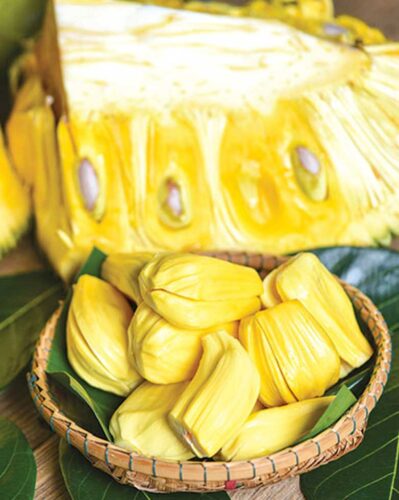 Rabbi Dr. Jo David was five when she started cooking with her mother and grandmother in their kitchen in Brooklyn. “Mastering the art of making kreplach (dumplings) stuffed with liver, gefilte fish, matzah balls, brisket of beef and chicken soup were important milestones in my becoming a worthy inheritor of our matriarchal family traditions,” David, who has been a rabbi in New York since 1992, told The Journal. “I took great pride and delight in being able to start my own family and produce these time-honored classics.” Although they did not keep kosher, all of their family holiday recipes were kosher in that they did not include any meat or fish that was treyf and also did not mix meat with milk.
Rabbi Dr. Jo David was five when she started cooking with her mother and grandmother in their kitchen in Brooklyn. “Mastering the art of making kreplach (dumplings) stuffed with liver, gefilte fish, matzah balls, brisket of beef and chicken soup were important milestones in my becoming a worthy inheritor of our matriarchal family traditions,” David, who has been a rabbi in New York since 1992, told The Journal. “I took great pride and delight in being able to start my own family and produce these time-honored classics.” Although they did not keep kosher, all of their family holiday recipes were kosher in that they did not include any meat or fish that was treyf and also did not mix meat with milk.
“Every holiday was imbued with the sights, sounds and smells of these dishes,” she said. “Many hours were spent in our kitchen lovingly cooking and sharing family stories.”
And then, at the age of 70, Rabbi Dr David became a vegan. David’s doctor told her that she had to do something proactive to improve her health; she had always struggled with her weight and had Type II Diabetes. She lost more than 30 pounds, her A1C numbers went down drastically and she felt good for the first time in her life.
“I found that I didn’t have food cravings and my weight remained stable; I became committed to eating a vegan diet,” she said. “I felt that I had, in some very real and visceral way, lost my connection to all our family meals and the memories that they evoked; I couldn’t eat the holiday meals that had been so much a part of my life.”
It was a real and extremely difficult loss. David researched vegan brisket recipes for a few years, but had yet to find one that satisfied her sense of unease at the holidays. Recently a friend (also a rabbi who has a son and daughter-in-law who are vegans) offered a solution to her vegan brisket dilemma: jackfruit.
While David was skeptical — she had bought packaged, pre-flavored jackfruit several times, only to throw it out — a recent experience with jackfruit curry at a local Indian restaurant encouraged her to give it a try.
“I am incapable of following a recipe exactly as written; I always add a pinch of something extra here and almost always change some preparation technique,” she said. “The change I made to my friend’s recipe was to treat the brisket “gravy” as a pasta sauce.”
She put all the wet ingredients in a pot, added pre-cooked vegetables, poured it all over the jackfruit and let it bake.
“It was terrific,” she said. “Jackfruit, when properly pulled apart, has a very meaty consistency very much like the kind of brisket my family was famous for.
“Over noodles or mashed potatoes, my recipe had a feeling of home.”
Rabbi Jo’s Vegan Brisket
1 14-oz can of jackfruit – I suggest
organic, if you can find it (not sweet)
2 diced yellow onions
3 carrots, diced and parboiled
2 stalks of celery, cut in half
1 can of diced tomatoes
1 tsp smoked paprika (or more to taste)
2-3 large cloves of garlic, minced.
2 bay leaves
Tomato paste to taste (I like the paste in the tube)
1 cup medium dry red wine
2 Tbsp Better than Bouillon – no beef beef flavor – dissolved in 2 cups hot water
1 cup of water
Salt and pepper to taste
Olive oil, canola oil or oil of your choice
1-2 bunches of broad leaf parsley, washed and minced. You can mince the stems for a little crunchy texture, which is very nice. Reserve about half for garnishing the “brisket.”
Optional (set aside and add when ready to put the pan into the oven):
6 additional carrots – cut into coins and parboiled until slightly undercooked.
1-2 pounds of sliced white mushrooms, dry sautéed. (You can cook mushrooms in a hot, non-stick pan without any oil. Keep stirring. Use a little water if they start to stick.)
A note about vegan cooking: Some vegans do not use any type of fat in cooking. This is very doable, even with sautéing, but it’s a learned skill (lots of videos on YouTube). If you don’t know how to dry sauté, use a little bit of olive oil or canola oil to sauté the onions and garlic.
In a saucepan, sauté the onions until they wilt. Add garlic and continue to sauté until the onions are translucent. Add the chopped tomatoes and stir until blended.
Transfer the onion mixture to a good-sized pot and add the carrots, paprika, celery, bay leaves, bouillon, ½ cup of red wine and the bouillon.
Bring to a simmer and taste. If you want a deeper tomato taste, some tomato paste, about a tablespoon at a time. At this point, add more bouillon, red wine and water until you are happy with the taste.
Add pepper to taste. (Not salt.)
Simmer for a couple of minutes to permit the flavors to blend.
Preheat the oven to 350°F.
Turn off the heat. Remove the celery and set aside for snacking. Discard the bay leaves.
While the contents in the pot are cooling slightly, prepare the jackfruit:
Drain jackfruit in a strainer and rinse under cold water. When well drained, put the jackfruit onto several layers of paper towel or a clean dish cloth and dry as well as possible.
Transfer to a cutting board. With a large fork, smash the lumps of jackfruit until all of it is broken down into “shreds.”
Using an immersion blender or a table top blender, blend the contents of the pot until the carrots, tomatoes and onions are well incorporated into the liquid.
Transfer the jackfruit to a roasting pan and cover with the blended liquid.
Optional: If adding additional carrots and/or mushrooms, add them to the braising pan at this point. Spoon some of the braising liquid over the vegetables.
Cover with foil and bake until the cooking liquid is bubbling, 30 – 60 minutes. Test the cooking liquid for taste and adjust as necessary. Add water, bouillon or red wine during cooking if more gravy is desired. If necessary, add salt to taste when the brisket is cooked.
Put the chopped parsley on the table as a garnish for this dish.
This can be served straight from the oven, but it’s better if it rests in the fridge overnight, just like the beef brisket.
Serve on top of egg noodles or mashed potatoes. Garnish with finely chopped parsley.



